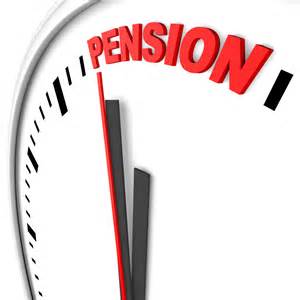In the first of two parts, John Lowe the Money Doctor itemises the first 5 of 10 things you need to know about pensions. When an actress like Britt Ekland states ..think of your pension and start saving. Like my father, I have been a spendthrift, and I regret that, it is time to sit up and take stock. We in Ireland are, as I keep saying, on a pension timebomb and several times over the past few years, politicians have tried to address the issues. While there is recent talk of the pension age being extended to age 70, it is now more important than ever to review your retirement plans no matter what age as we approach the important returns of those self-employed and companies next month. Here are the first 5 salient points on the topic :
- The background to the problem
Currently there are 677,000 pensioners over the age of 66 drawing € 238.30 per week through the State Pension. For every person who retired 5 years ago, there were 6 workers – by 2050, there will only be 2 workers but our ageing population will have grown to 1.8million by then – government payments at that time to these pensioners will be unsustainable unless something is done NOW to address the problem. There is now talk to raise the pension age beyond 68 here in Ireland to age 70 ( ERSI) but it is interesting that Germany has announced they are considering raising their retirement age to 69 by the year 2060.
According to recent research, by the year 2030 the average life expectancy of men will be 85.7 years and 87.6 years for women. Therefore, your time horizon for living on this planet may be much longer than you realise. Prepare to live a long time and make sure you have enough money to maintain your lifestyle as these retirement savings will need to last..
2. Who is affected ?
Every individual has to take responsibility for their pension planning and not rely on others to do it for them. You are never too young to start a pension – the younger the better.
Granted, a lot of people will benefit from a pension arranged in conjunction with their employers, as employers now MUST nominate an insurance company as a Pension provider so that employees can have deductions made directly from their salaries should the employee wish to contribute to a pension plan. Failure to nominate by the employer can result in a fine of up to € 15,000.
Other employees have already taken responsibility themselves and started private pension plans while others will use alternative investments to fund their retirement. However, there is still a significant percentage of the working population who for whatever reason have decided to ignore this problem. In fact, close on 50% of the working population currently have no pension plan in place at all.
3. Why a pension ?
When you stop working financially, you will need an income from some other source to continue living. While some of your monthly costs may be less when you are retired, you will still have sizeable expenses especially if you wish to fulfil life dreams and bucket lists. A pension is a savings plan withdrawable on retirement which attracts three specific tax breaks:
- Tax relief on the contribution that you make to your pension at your marginal rate of tax
- Tax free growth in the pension fund
- The availability of a tax free lump sum from the pension fund at retirement age of up to 25% of the fund to a maximum of € 200,000
3. What’s the first step ?
Do an annual budget. Ask yourself if you retired, could you live on € 233.30 per week ? However the question you must answer is can you afford to make any pension contributions at all ? Ideally you SHOULD be maximising that tax relief.
Age % of Income that can be contributed to your pension
20 – 29 15%
30 – 39 20%
40 – 49 25%
50 – 54 30%
55 – 59 35%
60+ 40%
4. Pension options
The type of pension you start is determined by your employment status :
A Company Director can start an Executive Pension Plan or a Small Self Administered Pension – SSAPs ( another name is the Self Directed Trust )
An Employee in a company that has a pension provision will be a member of a Company or Group Pension. This is also called an Occupational Pension Plan. He/she can also make additional contributions to the pension plan by way of an Additional Voluntary Contribution – AVCs
An Employee who works for a company but does not have a pension arrangement can start a Personal Pension Plan, a Personal Retirement Savings Account (PRSA).
A Self Employed Individual can start a Personal Pension Plan, a Personal Retirement Savings Account (PRSA) or a Self Invested Personal Pension.
An Unemployed Individual or a Homemaker can start a Personal Retirement Savings Account (PRSA). However, as they may have no taxable income, they cannot claim tax relief on the monthly contributions.
The one word for all the above is START. Be sure to read next week’s final part.

